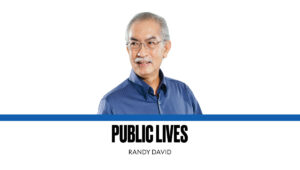
Forty-one years have handed since former senator Benigno “Ninoy” Aquino Jr. was openly murdered on the Manila Worldwide Airport on the day of his return from exile in the USA. A complete era of Filipinos has little reminiscence of that occasion. To them, the general public vacation that’s meant to supply Filipinos the event to mirror on the importance of his assassination by state forces is simply one other likelihood to get pleasure from a paid nonworking day.
President Marcos’ Govt Order No. 665 resetting the Aug. 21 commemoration to Aug. 23, a Friday, to make room for a gratifying four-day weekend, reinforces this forgetful mindset. (Aug. 26, a Monday, is Nationwide Heroes Day.) It shrewdly erases from the nationwide consciousness an occasion that contradicts the revisionist portrayal of the Marcos dictatorship as a benign and lawful regime.
As pioneers within the artwork of deploying individuals energy to oust a dictator, we Filipinos like to recollect the four-day phenomenon that overthrew the Marcos regime as just about cold and nonviolent. But when we shift our gaze to the lengthy years of resistance previous the collapse of the dictatorship, it could be exhausting to overlook the numerous lives that have been brutally destroyed by the regime.
We have a tendency to spotlight the nonviolent fruits of a protracted and arduous battle, forgetting the heroic sacrifices made by strange individuals to free the nation from the clutches of an odious regime. Not lengthy after Ninoy’s very public homicide, individuals realized that his loss of life forged a piercing gentle on all the opposite previous victims of the dictatorship. The spontaneous motion that grew out of that realization was named “JAJA”—Justice for Aquino, Justice for All.
Ninoy’s assassination woke up the center class from its stupor. It stirred the enterprise group, lengthy accustomed to taking part in it secure beneath any administration, into motion. Politicians, technocrats, and members of the intelligentsia, who had participated within the dictatorship’s elaborate charade to mission a professional order, started to distance themselves from the regime. The daylight homicide of the nation’s most outstanding opposition politician made them see their very own vulnerability, and maybe additionally their complicity within the perpetuation of a corrupt and merciless regime. Extra considerably, Ninoy’s loss of life emboldened thousands and thousands of strange Filipinos to pour out into the streets to mourn the passing of the dictatorship’s newest sufferer. His funeral grew to become the birthplace of individuals energy.
The fast succession of occasions that adopted his loss of life uncovered a break inside the nation’s ruling class that the ailing dictator couldn’t deny or restore. The rift made it simple to kind a multiclass coalition that resolutely known as for a peaceable and orderly transition to democracy. The necessity to guarantee a cold transition was exactly the gist of the message that Ninoy had come house, some say naively, to personally ship to Marcos. Although he was murdered earlier than he might converse to Marcos, his loss of life galvanized a nationwide motion that sought to spare the nation from the risks of a looming civil warfare. In lots of methods, Ninoy’s supreme sacrifice of his personal life was the worth he needed to pay to make sure the “miracle” that was Edsa.
Regime change by individuals energy has since been resorted to in various nations that had been dominated by brutal autocrats. The outcomes have been combined. Many of those actions succeeded in toppling regimes and putting in new ones. Noteworthy have been those who occurred in succession within the capitals of Japanese European socialism. However others—just like the student-led democracy motion at Tiananmen Sq. in China—tragically ended within the lethal suppression of unarmed protestors and the additional entrenchment of authoritarianism.
As we’ve got not too long ago seen in Bangladesh, the democratization development continues regardless of the resurgence of strongman politics in lots of components of the world, together with the Philippines. There, as in our nation in 1986, the army refused to take part within the additional suppression of protests. Greater than 300 individuals, largely college college students, died in simply three weeks of avenue battles with the police. The military’s refusal to carry a finger to defend Prime Minister Sheikh Hasina’s detested regime compelled her to finally flee. However, in contrast to at Edsa, her frantic departure didn’t finish within the swearing-in of a brand new chief able to assume the reins of presidency. As a substitute, it sparked new riots, this time aimed on the police itself and leaders of her political get together. The wave of violent reprisals that adopted compelled the military to intervene. The army made a transfer to imagine the reins of presidency. However the college students, who had led the protests and tried to maintain a semblance of order after the police deserted their posts, astutely asserted their proper to have a say within the formation of an interim authorities. With the army’s consent, they known as on the extremely revered Muhammad Yunus, 1984 Ramon Magsaysay awardee and recipient of the 2006 Nobel Peace Prize to steer a caretaker authorities. His mandate—to revive the peace and pave the way in which for the election of a brand new authorities—is way from simple. Although the political stress has subsided, Bangladesh’s future stays unsure.
—————–
[email protected]

